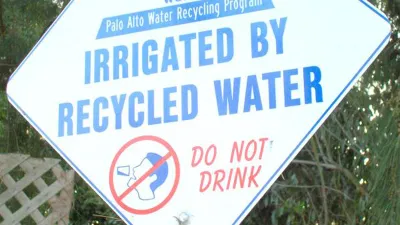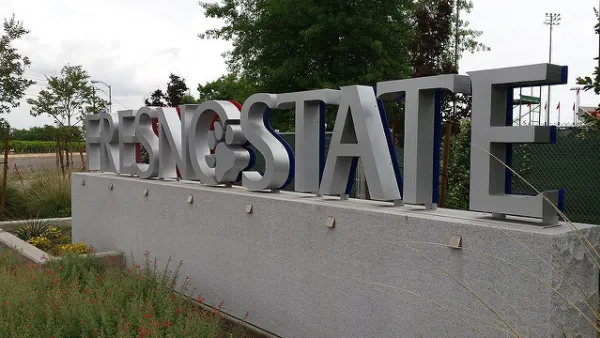Even as the Golden State has a wetter fall, California's water leaders have launched a new tool to leverage information technology and available information to support decisions around local water reliability.

Last month, the White House Council on Environmental Quality partnered with the California State Water Resources Control Board and other agencies to launch the California Water Data Challenge. In an exclusive interview with The Planning Report, State Water Board Chair Felicia Marcus discussed the importance of leveraging publicly available data to support creative solutions to California’s water challenges, as outlined in Governor Jerry Brown administration’s California Water Action Plan.
Marcus, who previously served as the administrator of the U.S. Environmental Protection Agency Region IX, described the opportunity of the Data Challenge as a way government has "basically thrown open the doors for the data world to look at all of the Water Action Plan and come up with their best ideas." As the recent historic drought has focused people's attention on utilizing data and technology to advance sensors and groundwater management, the State Water Board has looked for ways to incorporate basic water data from a rudimentary level. As Marcus explains, "Only in the last couple of years have we gotten the authority to ask for basic data on water use in more real time. In just the last two years, we’ve developed more data that we’ve ever had."
The challenge ahead is creating a culture of efficiency, Marcus believes, where the state can figure out a reasonable amount for each person indoors and for a landscape of whatever size that’s appropriate for your climate. Next steps for the State Water Board include updating Governor Brown's 2009 statute that aims for a 20% reduction in water use by 2020, as California will need to rapidly increase efficiency and water reuse as climate change impacts decrease Northern California snowfall. In thinking about the future, Marcus opines:
"We’re thinking about the next generation of that—not just a percentage off a given baseline calculated any number of ways, but a more fair and transparent way of finding a reasonable amount of water for Californians to aim for over a reasonable time period to become more resilient, to be more equitable because people are moving toward a similar target.
That’s where fairness comes in. People need some kind of guide or metric as to what’s reasonable and fair to aim for, so they don’t have to worry that they’re being held to a different standard than others. Data and transparency helps us to do more than assert that something is fair, but to lay it out so that everybody can see where other people are and that they’re moving toward it. I think it creates something of a social contract—a sense that we’re all in this together—around using our energy and water more wisely in an increasingly climate-disrupted world."
Check out Chair Felicia Marcus' assessment of the state's work to also increase the use of recycled water in The Planning Report.
FULL STORY: The Role of Water Data in California’s Conservation Efforts

Analysis: Cybertruck Fatality Rate Far Exceeds That of Ford Pinto
The Tesla Cybertruck was recalled seven times last year.

National Parks Layoffs Will Cause Communities to Lose Billions
Thousands of essential park workers were laid off this week, just before the busy spring break season.

Retro-silient?: America’s First “Eco-burb,” The Woodlands Turns 50
A master-planned community north of Houston offers lessons on green infrastructure and resilient design, but falls short of its founder’s lofty affordability and walkability goals.

Test News Post 1
This is a summary

Analysis: Cybertruck Fatality Rate Far Exceeds That of Ford Pinto
The Tesla Cybertruck was recalled seven times last year.

Test News Headline 46
Test for the image on the front page.
Urban Design for Planners 1: Software Tools
This six-course series explores essential urban design concepts using open source software and equips planners with the tools they need to participate fully in the urban design process.
Planning for Universal Design
Learn the tools for implementing Universal Design in planning regulations.
EMC Planning Group, Inc.
Planetizen
Planetizen
Mpact (formerly Rail~Volution)
Great Falls Development Authority, Inc.
HUDs Office of Policy Development and Research
NYU Wagner Graduate School of Public Service


























